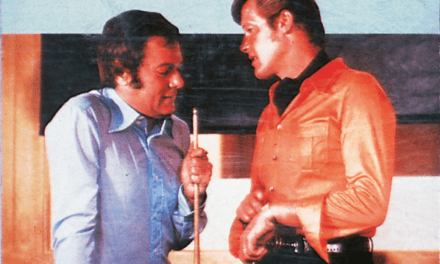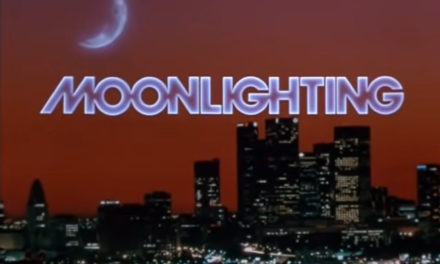Remembering television drama: ‘Television Drama: the Forgotten, the Lost and the Neglected’ Conference, April, 2015
Despite the tendency in television studies to emphasise the contemporary, British television studies has recently seen a number of AHRC-supported projects which have been exploring the history of British television (see below for details). This conference arose out of ‘The History of Forgotten Television Drama in the UK’ project based at Royal Holloway, University of London, with John Hill as PI and Lez Cooke and Billy Smart as its researchers. The project had begun the year with a week of screenings at the BFI on the South Bank (‘Forgotten TV Drama: Rediscovering British television’s neglected plays’, February 2015) and the conference offered a welcome blend of screenings, papers and interviews with key players. That the interest in old television is not confined to academics was evidenced by the welcome contributions of other television enthusiasts whose commendable stamina put many of the rest of us to shame; in the coffee breaks I learnt a good deal more about the specialist tv archive organizations: Kaleidoscope and Network. One thing that conference made crystal clear was that not everything is on the web.
The Conference kicked off with an engaging lecture by James Chapman on what he suggested might be ‘the last forgotten television genre’: the television swashbuckler. Dividing the genre into four periods, he emphasised the international elements, with co-production and overseas sales as an important part of the story, particularly for ITV. In fact, this international element was rather unusual for the conference was otherwise largely British in its concerns with strong contributions from Scotland and Northern Ireland but only two European contributions: Natalia Martínez-Pérez on Pilar Miró’s literary adaptations on Spanish television and Georgia Aitaki on Greek television comedy of the early 1990s. Given the amount of groundwork going on in archives and elsewhere, this British focus is probably inevitable but later on some comparative work across genres or production set-ups, for instance, would be productive.
The conference mixed together papers, screening and plenary sessions in a very well-balanced schedule. There was a strong emphasis on practitioners with three sessions in which dramas from the 1970s and 1980s were screened and discussed:
The forgotten 1970s drama of Granada Television – John Irvin and Jonathan Powell
Second City Firsts (BBC2, 1973-8) – Philip Jackson, Tara Prem, Philip Saville and Jack Shepherd
The BBC1 Classic Serial (1981-8) – Terrance Dicks
These panels brought together a good mix of people (actors, producers and directors) and their enthusiasm and camaraderie were evidently still strong. The discussion was informative as much in the performance as the content – Jack Shepherd demonstrated how profoundly his background in radical theatre affected his work in television, including his play, The Actual Woman (1974) which was screened; Tara Prem showed how necessary her steely focus had been for the production of the camera script which underpinned studio drama such as Pig Bin (1974) which was also screened; Philip Jackson (still to be seen in Raised by Wolves (2015)) gave a vivid sense of the pressure of the first run-through of a studio drama like Pig Bin; John Irvin, himself on the left, was evidently still frustrated by the intractability of the powerful television unions.


The panels also demonstrated one of the problems of oral history and television. Accounts of meetings in pubs, the freedom from interference on location, the creative and technical experimentation possible even in a commercial context seem to make an irresistible case against the iron grip of the current commissioning system. But it’s impossible to imagine that what might have worked in the 1970s could be replicated in the current situation with the changed position of the BBC, the demands for transparency, accountability and diversity coming from all sides and the casualization of labour, in TV as well as the rest of the economy, as the unions lost power.
It’s a sign of the coherence of the conference that some of the academic papers related directly to programmes referred to; Leah Panos, for instance, on Full House (1972-3), the BBC2 magazine programme for which Shepherd’s play was originally intended and Vanessa Jackson talking about the first television drama in Britain to have an entirely Asian cast, A Touch of Eastern Promise (1973) written by Tara Prem.

The argument that A Touch of Eastern Promise was overshadowed, critically, by later dramas working on the same ground (Gangsters (BBC, 1976-78) was a pattern that could be discerned in other discussions – Derek Johnston on Stranger from Space (BBC, 1951-3) in relation to The Quatermass Experiment (BBC, 1953); Ben Lamb on New Scotland Yard (LWT 1972-4) in relation to The Sweeney(Thames, 1975-8);The Nearly Man (Granada, 1975) (produced and directed by Powell and Irvin) in relation to Bill Brand (Thames, 1976); and Rachel Moseley on The Pingwings (ITV, 1961) in relation to The Clangers (BBC, 1969) and Bagpuss (BBC, 1974) in an analysis of stop-motion animated children’s programmes.

The delight and excitement in the processes of research was continually evident in the papers I heard. Material from BBC staff files, audience research reports, hand-marked scripts and personal correspondence were discussed with informed animation. We heard material from research interviews and I was delighted to get a glimpse of Adele Rose, the writer of more Coronation Street episodes than anyone else, in a filmed interview with Vicky Ball. Old controversies were recalled – Sally Shaw on Gloo Joo (1979), an LWT play starring Oscar James about a Jamaican immigrant in Brixton, described by Race Today as ‘culturally racist’ and Dave Rolinson telling the fascinating story of an Alan Plater play, The Black Pool, commissioned for the science series Horizon but never broadcast. Perhaps the most bizarre evidence was presented by Richard Wallace in his paper on John Cura who made a living (and a record of lost programmes) by photographing his home television screen in the 1950/60s.
Forgotten Television is a baggy concept since it depends on a fluid definition; as Billy Smart mused in one of his informative blogs, ‘the first question that I necessarily ask myself . . . is, “Can I accurately call this programme forgotten?”’. The emphasis on the archive certainly meant I returned from the conference with a host of names and television programmes to follow up, as well as a copy of the second edition of Lez Cooke’s British Television Drama, launched at the conference, which will tell me about a whole lot more. But it’s clear also that the reasons why particular programmes are forgotten are beginning to take shape in ways that go beyond problems of recording and storage. And just in case we thought that everything is alright in the digital age and that Netiflex and Amazon will provide us with endless online availability, J P Kelly argued, in a paper entitled ‘A Vast Digital Wasteland: The Economics and Ephemerality of Digital Television’, that ‘a number of economic logics are currently creating a more ephemeral connection between viewer and content’.
Christine Geraghty is an Honorary Professorial Fellow at the University of Glasgow. Her publications on television include a contribution to the 1981 BFI monograph on Coronation Street; Women and Soap Opera (Polity, 1991); and My Beautiful Laundrette (I B Taurus, 2004). Her BFR TV Classic on Bleak House was published in 2012 and her reflections on the beginning of her work on soap opera appears in ‘The BFI women and film study group 1976 – ?’, Renewing Feminisms, Radical Narratives, Fantasies and Futures in Media Studies H. Thornham and E. Weissmann (eds) I B Taurus 2013. She is on the editorial board of the Journal of British Cinema and Television and sits on the advisory boards of a number of journals, including Screen.
Second City Firsts: The Actual Woman (BBC2, 1974, written by Jack Shepherd, directed by Philip Saville)
Second City Firsts: Pig Bin (BBC2, 1974, performed by Philip Jackson, produced by Tara Prem)
AHRC-supported research projects
- ‘The History of Forgotten Television Drama in the UK 1946-82’
- ‘Spaces of television – Production, site and style
- ‘Screen Plays: Theatre Plays on British Television
- ‘History of Television for Women in Britain: 1947-1989’
- ‘Women’s Work, Working Women: A Longitudinal Study of Women Working in Film and TV Industries (1933-89)’
Websites
Conference programme: https://forgottentelevisiondrama.wordpress.com/2015/02/27/booking-now-open-for-television-drama-the-forgotten-the-lost-and-the-neglected-royal-holloway-college-egham-22-24-april-2015/
https://forgottentelevisiondrama.wordpress.com/2013/10/02/the-forgotten-history-of-british-tv-drama/
https://forgottentelevisiondrama.wordpress.com/2014/02/
http://s2s.focalint.tv/Publications/AZ_articles/az2014spring_iss89_forgotten_television_drama.pdf





